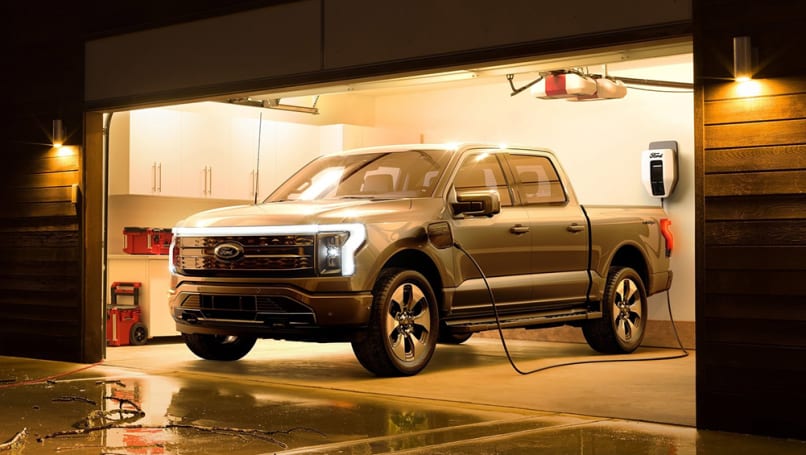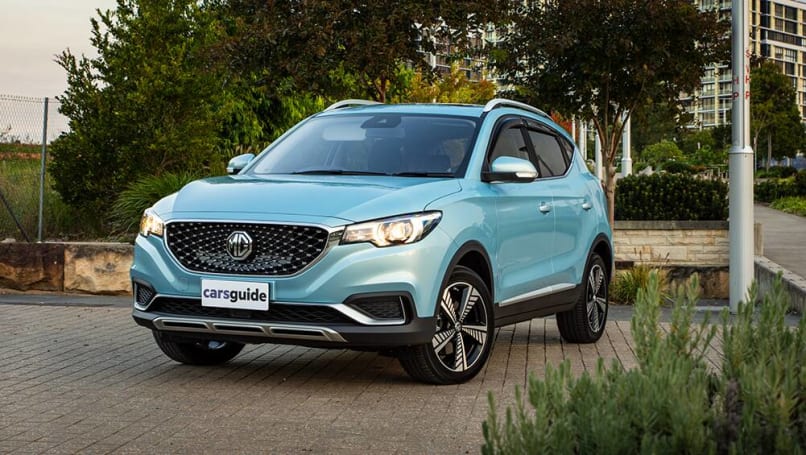
Holden class action! Holden Commodore, Colorado, Trailblazer, Caprice and more swept up in alleged faulty automatic transmission saga
Law firm Maurice Blackburn has launched a class action lawsuit against General...
Browse over 9,000 car reviews

Australia appears to have finally reached a tipping point with electric vehicles (EVs).
Not only are more and more carmakers introducing or announcing EVs, but crucially state governments around the country have begun taking the upcoming transition more seriously; both in terms of talking incentives and introducing new taxes.
It seems after years of taking a slowly, slowly approach, Australia is set to accelerate its EV uptake in the coming years.
With so much going on, here’s a look at what’s happening with every major brand in the country (or at least the 10 best-selling ones) in terms of EVs that will be here in the not-too-distant future.

The Japanese brand has cemented itself as the hybrid leader with big numbers of Corolla, Camry and RAV4 rolling out of dealerships. Toyota looks set to skip over plug-in hybrids and move straight to EVs with the bZ4X.
Toyota unveiled a concept preview of the bZ4X earlier this year, which indicates it will be a RAV4-sized SUV and is set to hit production in 2022. There’s little in the way of details about the model yet, but Toyota Australia has committed to introducing it as soon as it becomes available; likely sometime in late 2002 or early 2023.
It will be the first of seven bZ (beyond Zero) models Toyota plans to introduce by 2025. It’s unclear how many of these will also be offered locally.

Mazda was reluctant to make the move to EVs, devoting its resources to the development of its Skyactiv-X technology, but it will ultimately beat many of its rivals to getting a battery-powered vehicle into showrooms.
This is thanks to the MX-30 Electric compact SUV that is set to hit dealers in August, months after the mild-hybrid version.
No other EVs have been confirmed beyond the MX-30, but it’s understood the next generation CX-5 and Mazda6 will sit on a new platform that will be capable of combining the Skyactiv-X engines with both a 48-volt mild hybrid system and a plug-in hybrid powertrain.

Unlike Mazda, the South Korean brand has made an early and sizable commitment to EVs, with the Ioniq small car already on sale alongside the Kona Electric, which was recently updated. But Hyundai will spin-off the Ioniq name into its own sub-brand of electric models, with the Ioniq 5 SUV set to be the first of its kind when it arrives later in 2021.
The Ioniq 5 is based on the newly-developed e-GMP electric architecture that Hyundai-Kia has created to underpin not only the Ioniq models, but also Kia and Genesis products. It boasts a range of up to 470km, has an ultra-rapid charging 800-volt electrical system and the option of single or dual motors.
It will also sit underneath the Ioniq 6, a production version of the Prophecy concept, that will likely launch in Australia in late 2022. Hyundai has also confirmed a large SUV is under development, the Ioniq 7.

Kia wanted to join the EV community a long time ago with its e-Niro (a Kia version of the Kona Electric) but was unable to secure supply, the company says because of Australia’s lack of incentives and low demand. But it seems with the changing of the tide in the local EV debate, Kia Australia was able to secure the e-Niro and it has just gone on sale.
While it uses the brand’s previous EV platform, Kia has already confirmed that the EV6 - which uses the e-GMP underpinnings - is on the way by the end of the year. While the standard EV6 range has the potential for mass-appeal, the EV6 GT could change people’s opinions of Kia forever, with its 430kW/740Nm electric powertrain set to make it the fastest car the company has ever offered.

The Blue Oval has been making a big public commitment to EVs in both the USA and Europe - unveiling the Mustang Mach-E and F-150 Lightning in the States, while the European operation has vowed to be all-electric by the end of the decade.
Ford Australia has not officially locked in any model - and has explicitly ruled out both the Mach-E and Lightning - but the brand’s closer ties to Europe suggest it will probably come from there.
That means the most likely outcome is Ford Australia will get the EV being developed by Ford of Europe using the Volkswagen ‘MEB’ platform. Ford and Volkswagen are sharing development of several models (including Ranger and Amarok) and that is expected to allow the blue oval to build a Puma-sized SUV on the same underpinnings as the VW ID.4.
There have been reports of a second ‘MEB’ based Ford, but no official word so that could mean it’s several years away from local showrooms.
There’s also the slim possibility that increased supply of the Mach-E could eventually lead to it being made available in Australia, just like the original Mustang.

To its credit, Mitsubishi was one of the first brands to recognise the potential for EVs and was the first major car brand to offer one for sale in Australia. That was the i-MiEV, a tiny city car that was discontinued after only two years on sale.
Since then, it has prioritised its plug-in hybrid powertrain with better success in the Outlander.
However, in terms of confirmed EV projects for Australia, Mitsubishi has none. But given its connections to Nissan and Renault, that could change quicker than most by platform-sharing with its alliance partners.

Arguably the leader in terms of mainstream EVs has been Nissan, which introduced the Leaf back in 2011 and has continued to have it available since, including introducing an update in 2019.
The big news for Nissan though is the upcoming Ariya, an X-Trail-sized EV that could help the brand take a step forward with its EVs. It will give Nissan an electric SUV, which should immediately make it more appealing to buyers, given the greater interest in SUVs compared to small cars locally.
The Ariya has been designed with options for different motors, batteries and the choice of front- or all-wheel drive.
Officially Nissan Australia hasn’t confirmed the Ariya but given its commitment to EVs it’s likely it will hit our shores sometime in 2022.

The partnership between Subaru and Toyota has expanded beyond the BRZ/86 sports car and will include sharing EVs. Subaru has unveiled the bZ4X-based Solterra and confirmed it will go on sale in 2022.
However, that’s only in Japan, North America, China and Europe, with Subaru Australia yet to lock it into its plans. The company says it’s still discussing the Solterra with HQ but there’s no time frame when it will become available.

The German brand has been one of the most vocal voices in the push for more to be done to support EV adoption in Australia. That’s in large part because it’s well-prepared to make the switch with both the ID.3 and ID.4 already on the road in Europe.
The brand wanted to launch the two models sooner rather than later, but the lack of government action on EVs has pushed back the launch until 2023.
Volkswagen is making a big push towards EVs in the wake of the diesel emissions scandal, vowing to produce a wide range of battery-powered models under its new ‘ID’ banner by the end of the decade. Beyond the ID.3 and ID.4 there have been several ID concepts of various shapes and sizes so expect plenty of VW EV options in the coming years.

The Chinese-owned British brand currently offers the most affordable electric car in Australia, the $43,990 drive-away ZS EV. It could only be the first though, with the brand eager to introduce more EVs around the world.
It’s already shown off the Marvel R SUV in Europe, boasting a 212kW/665Nm powertrain with a 400km range, but has yet to confirm if it will be available in Australia.
The Cyberster roadster concept has shown the brand is key to return to its sports car roots with a modern powertrain, but again it’s unlikely for Australia.
Comments